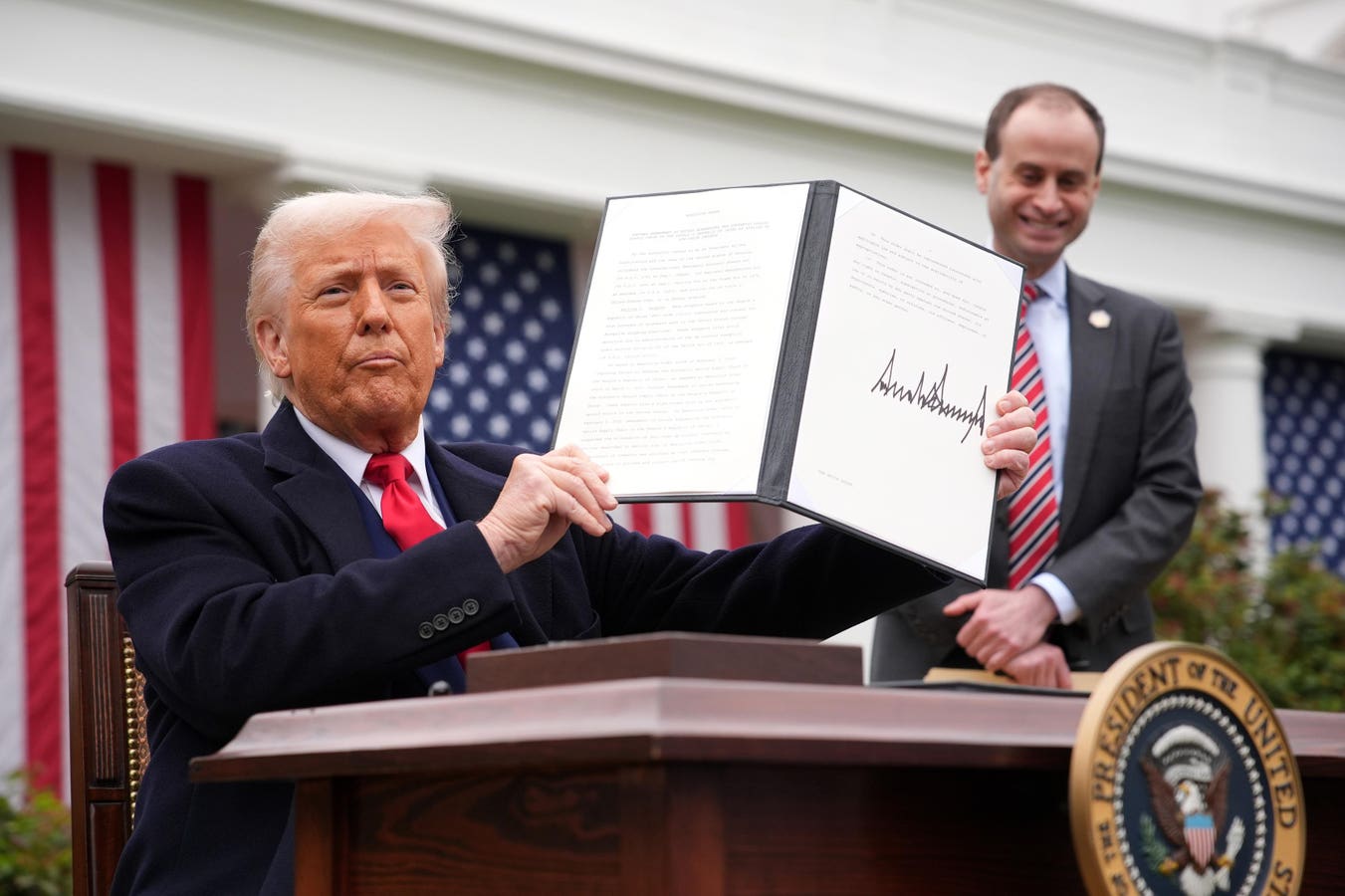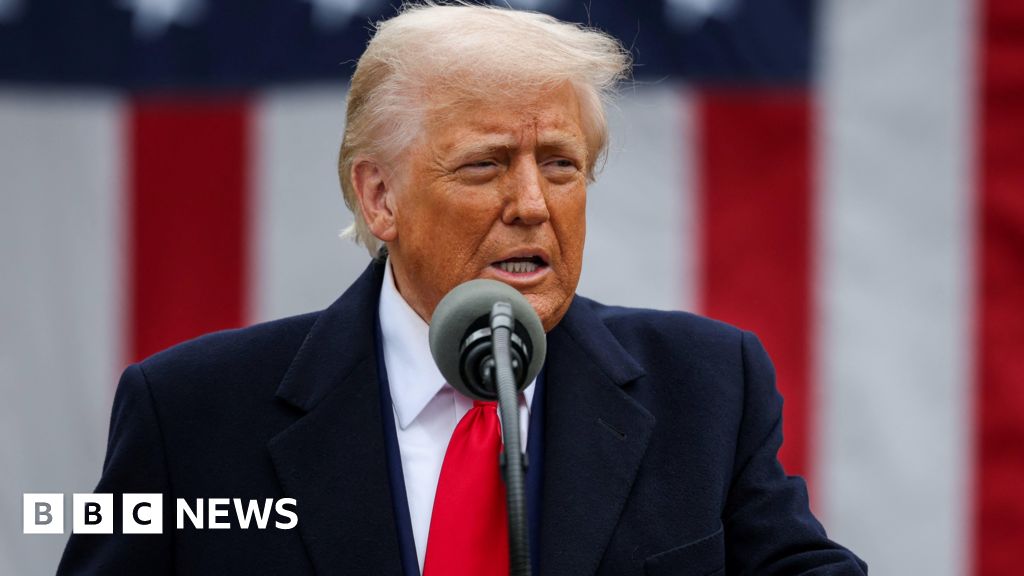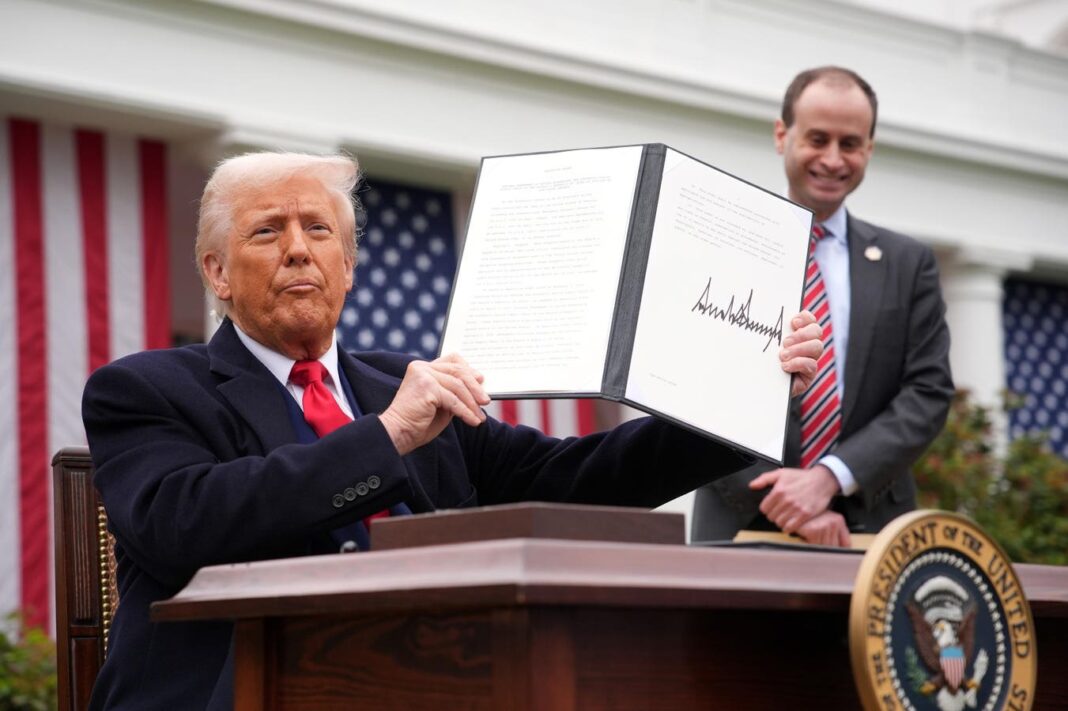## Trump’s “Liberation Day” Tariffs: A Blessing or a Burden for Small Businesses? President Trump declared May 10th, 2019, “Liberation Day” in a celebratory tweet, marking the end of a period of trade negotiations with China. But for small businesses across America, the real story of these “liberating” tariffs isn’t so clear-cut. Will these new trade policies be the economic boost Trump promises, or will they send already struggling businesses reeling? Forbes dives deep into the complex reality of Trump’s tariffs, exploring the potential impact on small businesses and what they can do to navigate this uncertain landscape.
Economic Studies and Expert Opinions
Economic Studies Supporting Tariffs

Several economic studies have presented a positive outlook on the implementation of tariffs, suggesting they could bolster domestic industries and production. A 2024 study by the Coalition for a Prosperous America found that tariffs in place during Trump’s first term led to significant reshoring in manufacturing and steel sectors, as well as increased domestic production. The study noted that U.S. steel output, employment, and capital investment improved, and steel producers announced plans to invest more than $15.7 billion in new or upgraded facilities, creating over 3,200 new jobs. These outcomes indicate a potential for stimulation of domestic industries and job creation.
A 2023 report by the U.S. International Trade Commission analyzed the impact of tariffs on over $300 billion in U.S. imports, concluding that while imports from China decreased, U.S. production of affected goods increased with minor effects on prices. This suggests that tariffs can drive domestic production and potentially reduce the trade deficit. Additionally, a 2022 report from the Economic Policy Institute argued that tariffs had no significant correlation with inflation, suggesting that their impact on consumer prices might be more limited than initially feared.

Critiques and Concerns
Despite these positive findings, numerous experts and studies warn of the potential negative consequences of imposing tariffs on a broad scale. One major concern is the risk of triggering a global trade war, where other countries retaliate with their own tariffs. This could escalate into a situation where the flow of goods and services is severely restricted, leading to increased costs and decreased economic efficiency worldwide. Economists like those at the Yale School of Management predict that such a scenario could cost U.S. households an additional $3,400 to $4,200 annually due to higher prices on imported goods.
Another significant concern is the inflationary pressures that tariffs could exert. Critics argue that tariffs increase the cost of imported goods, which can be passed down to consumers in the form of higher prices. This was highlighted by economists at the University of Chicago who noted that while tariffs might protect certain domestic industries, the broader economic implications could lead to higher inflation, undermining the overall economic stability.
Small Business Strategies and Adaptation
Mitigating Tariff Costs
Small businesses facing the immediate financial impact of new tariffs need to take proactive steps to minimize their cost burdens. One effective strategy is to renegotiate contracts with suppliers to pass on some of the costs or seek alternative suppliers who are not affected by the tariffs. Diversifying the supply chain can also help mitigate the risk of increased costs from a single supplier. Small businesses that import goods should consider sourcing from domestic suppliers or countries not subject to the new tariffs to maintain competitive pricing.
Moreover, businesses can explore new business models or products that are less reliant on imports. For instance, a small electronics retailer may focus on selling domestically produced goods or products with lower tariff rates. Additionally, businesses can implement cost-saving measures like reducing inventory levels to minimize the financial burden of tariffs and improve cash flow. Retailers and manufacturers can also leverage technology to optimize logistics and reduce operational costs, thereby offsetting the tariff-induced price hikes.
Government Support and AssistanceGovernment Support and Assistance
Recognizing the potential hardships that small businesses might face as a result of these new tariffs, the federal government has initiated several programs designed to provide support and relief. One such initiative is the Tariff Mitigation Fund (TMF), which offers grants and low-interest loans to small businesses to help them adjust their supply chains and transition to more cost-effective sourcing strategies. Additionally, the Small Business Resilience Program (SBRP) provides training and resources to small business owners to help them navigate the complexities of international trade and mitigate the effects of tariffs on their operations.
Moreover, the government has announced the implementation of Tariff Relief Zones (TRZs), designated areas where small businesses can receive tax breaks and other incentives to offset the financial burdens imposed by tariffs. These zones are designed to foster innovation and resilience within small businesses, particularly in industries that are heavily reliant on imported goods. Government support also includes streamlined access to counseling services and technical assistance through the Small Business Administration (SBA), which helps businesses understand and navigate the changes brought about by the tariffs.
Long-term Implications and Future Outlook
Sustainable Growth or Economic Slowdown
The long-term implications of Trump’s tariffs on the U.S. economy and on small businesses, in particular, are multifaceted and complex. While the initial intent behind the tariffs is to stimulate domestic production and protect American jobs, economists and industry experts are divided on the sustainability of these measures. Proponents argue that higher tariffs could lead to a more robust domestic manufacturing sector, potentially creating long-term sustainable growth by reshoring industries that had previously moved overseas.
However, critics warn that the tariffs may instead lead to economic slowdowns due to increased operational costs and potential trade wars with other countries. There is a risk that retaliatory tariffs could disrupt global supply chains, leading to higher costs for businesses and consumers. The long-term health of small businesses depends on their ability to adapt to new trading conditions and find alternative ways to maintain profitability. The shift towards more expensive domestic goods could also reduce consumer purchasing power and decrease disposable income, potentially stifling economic growth.
Global Trade Dynamics
The implementation of these tariffs is expected to significantly alter global trade dynamics. Countries like Canada, China, Japan, and India have already announced retaliatory measures, likely setting the stage for a prolonged period of economic tension and negotiation. These retaliatory tariffs could lead to a reduction in the volume of trade between the U.S. and these countries, affecting small businesses that rely on international trade for their supply chains or markets.
International business strategies will need to evolve to adapt to these new trade policies. This could include diversifying markets, seeking new trading partners, and investing in domestic production capabilities. However, the long-term impact on global trade relationships is complex and unpredictable, and small businesses will need to be agile and adaptable to navigate these changes. The potential for a realignment of global trade networks could lead to shifts in the global economic landscape, with countries seeking new economic partnerships and alliances outside of the traditional transatlantic trade relationships.
Conclusion and Call to Action
Immediate Actions for Small Businesses
With the tariffs taking effect, small businesses must take immediate action to mitigate potential damage. Firstly, businesses should review their current supply chains and seek new, more cost-effective suppliers to avoid the financial burden of increased tariffs. Engaging with industry groups and trade associations can provide valuable resources and collective bargaining power to navigate these changes. Additionally, small businesses should consider diversifying their product offerings to include more domestically produced items or those not subject to the new tariffs, thereby reducing dependency on affected imports.
Small businesses should also explore government programs designed to assist in adapting to the new trade policies. Utilizing grants, loans, and training provided by the Small Business Administration (SBA) can help businesses make necessary adjustments without compromising their financial stability. Investing in technology and operational efficiency can also help reduce costs and maintain competitiveness in a more challenging economic environment.
Engaging with Policy Makers
Small businesses should not solely focus on immediate cost-saving measures but also engage in advocacy efforts aimed at influencing future trade policies. Business owners and leaders should actively participate in public forums, write to their representatives, and join trade associations that can lobby on behalf of small businesses. Engaging in public consultations, submitting feedback to proposed regulations, and participating in trade policy discussions can help ensure that the voices of small businesses are heard and considered in the policy-making process.
Collaborative efforts with other small businesses and industry associations can amplify the impact of advocacy. By collectively pushing for more supportive trade policies and exemptions for small businesses, the community can help mitigate the adverse effects of tariffs. It is crucial for businesses to stay informed and engaged, constantly adapting to the evolving trade landscape to ensure long-term sustainability and growth.
Conclusion
The Unsettling Reality for Small Businesses: Trump’s Tariffs and the Road Ahead
In our recent analysis of “Liberation Day: What Trump’s Tariffs Will Mean For Small Businesses” by Forbes, we delved into the intricate world of international trade and its far-reaching implications for small businesses. The article clearly outlined the Trump administration’s decision to impose tariffs on imported goods, sparking a mixed bag of reactions among entrepreneurs and business leaders. Key points highlighted the potential for increased costs, reduced competitiveness, and a ripple effect on supply chains. The article also emphasized the need for small businesses to adapt and diversify their strategies to mitigate the negative fallout.
The significance of this topic cannot be overstated, as it affects not only small businesses but also the broader economy. The shift in trade policies has the potential to reshape the global landscape, with far-reaching consequences for industries, jobs, and communities. As we look to the future, it’s clear that small businesses will need to be agile and innovative to navigate the changing trade environment. The question on everyone’s mind is: will they be able to adapt quickly enough to stay afloat? The answer lies in their ability to innovate, adjust their supply chains, and find new markets.
As the trade winds continue to shift, one thing is certain: the fate of small businesses hangs in the balance. Will they be able to weather the storm, or will the tariffs prove to be a toxic cocktail for their survival? The answer to this question will have a profound impact on the economy, jobs, and the very fabric of our society. As we move forward, one thing is clear: the time for complacency is over. Small businesses must rise to the challenge, and the nation must rally around them to ensure their continued success and prosperity. The future of small businesses is a ticking time bomb – will we detonate it, or find a way to disarm it? The choice is ours.
